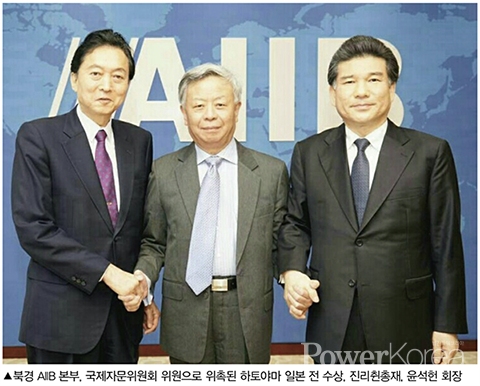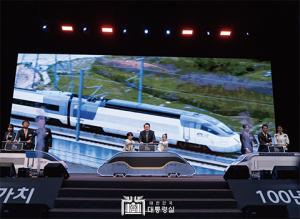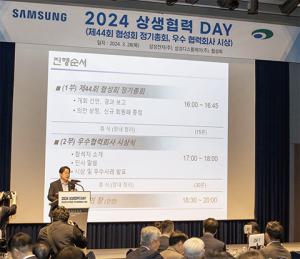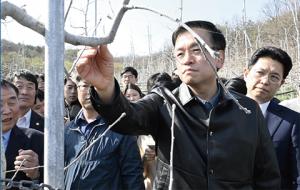 |
||
With the end of the East-West Cold War and the acceleration of globalization, all countries in the global village have been tied into one integrated network and have achieved unprecedented economic development in a supranational framework. Occupying a complex geopolitical position in world history, South Korea has risen from the ashes of war to become one of the most developed countries in the world. These achievements led to the establishment of diplomatic relations between Korea and China in 1992. Since then, the two countries have maximized their mutual benefits and have had a tremendous impact on global economic development. However, globalization, which has been a driver of global peace and economic growth, has recently come to an end, and the globalization movement is gaining momentum. The U.S.-China conflict, the Russia-Ukraine war, and the Israeli-Palestinian war pose new threats to the closely interconnected transnational global landscape. While South Korea has become a major player in the global economy, it still faces more political and geopolitical risk than any other country in the world. Idetermine future national security and economic issues.t is no exaggeration to say that in addition to the North Korean nuclear issue, the diplomatic stance we take in South Korea, South Korea, China, and the United States will determine future national security and economic issues. In this context, many are paying attention to the work of the Asian Economic Development Committee (Chairman Sukhun Yoon}, which is promoting growth among the three countries by maximizing their capabilities through private diplomacy. Monthly PowerKorea sat down with Yoon and learned about it.
 |
Committee, consisted of key figures with top leadership experience
Significantly influencing the establishment of Korea-China diplomacy in 1992
The AEDC is a cooperative organization between South Korea, China, and Japan that specializes in bringing together a wide range of diverse resources, with a focus on investments in infrastructure, airports, ports, railways, highways, subways, power plants, and new city construction, and has its own financial capabilities. “It has key individuals with top leadership experience in their respective countries playing a pivotal role in the operation of the committee. The organization was founded with the vision of maximizing the capabilities of the three countries to reach out to the rest of the world, and it has been active in many activities from the past to the present.” says the committee chairman Yoon. AEDC’s predecessor, the Asia-Pacific Institute for Economic and Cultural Studies, was founded in 1986 and supported by former Prime Minister Kim Jong-pil as honorary chairman. His advisors included Lee Man-seop, Speaker of the National Assembly, and Ok Man-ho, former Chief of Staff of the Air Force, and were influential in the establishment of diplomatic relations between South Korea and China in 1992. It helped Korean conglomerates such as Samsung, Hyundai, LG, and SK enter China, and was instrumental in establishing direct flights. In 2013, Yoon stunned the world with his diplomatic prowess when he was given full authority to mediate an oilfield dispute between the governments of China and Gabon, and successfully mediated the dispute over 12 months to a resolution satisfactory to both governments. Oilfield disputes usually take a long time, often lasting 10 to 20 years or more. In 2015, he contributed greatly to the establishment of China’s AIIB (Asian Infrastructure Investment Bank) with former Japanese Prime Minister Yukio Hatoyama, the committee’s top advisor, and received great attention at the time. The AIIB is an international financial organization proposed by Chinese President Xi Jinping in 2013 that is a bank for infrastructure investment in the Asia-Pacific region. Today, it has grown to include 103 countries as members or prospective members. The AIIB has maintained its own identity and role while working alongside existing multilateral development banks such as the World Bank, ADB, and EBRD. In 2015, South Korea officially declared its participation in the AIIB as the 34th , at the request of the Korean government, and Chairman Yoon was instrumental in the establishment of the AIIB, taking the lead in internal negotiations on South Korea’s role and staffing. In particular, when the Korean government was initially hesitant to join the AIIB due to U.S. concerns, Yoon persuaded them to join. In particular, when the South Korean government was initially hesitant to join the AIIB due to U.S. concerns, Yoon persuaded it to join. He also convinced the Chinese government to appoint former Japanese Prime Minister Yukio Hatoyama as an international advisor to the AIIB. At the time, Japanese Prime Minister Abe had appointed former Prime Minister Fukuda as an advisor to the AIIB, and Abe had sent a representative of the then-coalition government, the Komeito Party, to formally oppose Hatoyama’s appointment. However, Yoon’s persistence and persuasion eventually led to the appointment of Mr. Hatoyama. Yoon persuaded the Chinese government with the logic that an international bank should not be subject to political logic, and that an internationally respected person should be selected. AIIB held its annual general meeting in Jeju in 2017. Aisa Towards Resilient Peace: Cooperation and Integration, held at the General Assembly at the time, included former UN Secretary-General Ban Ki-moon, former Australian Prime Minister Malcolm Turnbull, former Austrian President Heinz Fischer, former Japanese Prime Minister Yukio Hatoyama, and Helen Clark ( Helen Clark, former Prime Minister of New Zealand, Graham Ellison, Distinguished Professor at Harvard University, Jack Lang, former French Minister of Culture, and former Chinese Foreign Minister Li Zhaoxing.
 |
The country’s top diplomatic and economic expert on China, the Middle East, and East Asian affairs
Significant influence on the establishment of AIIB
Contributed largely to the establishment of the Yuan clearing bank
Revitalizing trade with China
Yoon is a civilian diplomat with special connections for over 30 years, and is known as Korea’s top expert on China, the Middle East, and East Asian countries. In addition to establishing AIIB, he took the lead in various projects related to China and achieved outstanding results. In 2014, the Korean government recognized the need for a RMB clearing bank to meet the growing trade volume between the two countries, and a special purpose clearing bank was established in South Korea under the agreement of the two leaders with the ambitious plan to create a RMB hub bank in Northeast Asia. This will be done by the People’s Bank of China, the country’s state-owned bank, which will entrust the task to the Transportation Bank of Korea’s Seoul branch. “The clearing bank will be responsible for providing RMB liquidity to Korean financial institutions and clearing and settling RMB funds, thus fulfilling the special function of connecting the onshore Chinese and Korean financial markets. To ensure smooth functioning, the clearing bank was granted three privileges (RMB exchange, liquidity provision, and bond investment) and allowed to connect directly to the China National Advanced Payment System(CNAPS). “The clearing bank was successfully launched in November 2014 with the participation of the Minister of Strategy and Finance, the Governor of the Bank of Korea, the Chairman of the Financial Supervisory Service, and the heads of major commercial banks, but it had not been activated for various reasons. As a clearing bank is different from a commercial bank in terms of its foundation, purpose, scope of business, and target customers, it is necessary to revise the laws and regulations applicable to commercial banks. Therefore, we actively requested the government to make appropriate revision recommendations and encourage the use and payment through the clearing bank in Korea.” explained Yoon. At the time, South Korea’s trade rivals Taiwan, Hong Kong, and Singapore had established and actively operated clearing banks. South Korea did not use a clearing bank RMB settlement account and left the market to its own devices. More than 95% of domestic financial institutions did not use clearing bank accounts and continued to use offshore accounts in Hong Kong, Singapore, and elsewhere in accordance with existing practices. In order to change this situation, Yoon was holding discussions with the Korean government on ‘revision of laws on clearing banks’ with a special purpose and ‘establishing an external environment in which clearing banks can perform their original functions such as providing liquidity and reducing settlement risks.’ He took the lead in coordinating between the Seoul branch of the Bank of Korea, and overcame various difficulties to the end, including diplomatic conflicts due to disparate factors such as the financial and political systems of the two countries, ultimately laying the foundation for a successful solution.
 |
Behind-the-scenes negotiations between Korea and China
Former Prime Minister Kim Jong-pil’s handwritten title and personal letter were directly delivered to China’s Supreme Leader Deng Xiaoping as a special envoy.
Invitation of top Chinese leaders to Korea
Arranging meetings between the government and companies
Serves as a bridge between Korea and China
Yoon greatly contributed for Beijing’s Vice Mayor of Commerce, Zhang Baifa, to visit Korea as the first Chinese leader to do so in 1986. In 1991, as a special envoy, he delivered a handwritten calligraphy in traditional Chinese calligraphy written by former Prime Minister Kim Jong-pil to China’s top leader at the time, Deng Xiaoping, for behind-the-scenes negotiations to establish diplomatic relations with China. Yoon actively helped Samsung Electronics enter China, especially by communicating with Chinese government leaders and political and business figures. “Even before the establishment of diplomatic ties between Korea and China, we contributed greatly to attracting investment from China by Samsung Electronics, Daewoo, Korean Air, Asiana, LG, Hyundai, Dong-A Group, and Pacific, and invited influential Chinese delegations to Korea to pioneer the Chinese market.” said Yoon. The highest-ranking figure to visit Korea since the establishment of diplomatic relations between Korea and China in 1992 is National People’s Congress Vice Chairman Wang Guangying (the vice-chairman of the National Assembly of Korea and the brother-in-law of Liu Xiaoqi, China’s first president). Additionally, in 1993, Deputy Prime Minister and Minister of Education Zhu Kaixuan and a visiting delegation from the Ministry of Education were invited to lay the foundation for educational exchange between Korea and China. Afterwards, he invited Vice Prime Minister Li Nanqing and contributed to revitalizing exchanges between the two countries. He invited Deng Lin, the eldest daughter of China’s supreme leader Deng Xiaoping, chairman of the Chinese Artists Association, and Deng Xiaoping’s eldest son, Deng Pofang (president of the Association for the Disabled), to Korea and arranged a meeting with former President Kim Young-sam, and also invited the mayor of Beijing to Korea. He also contributed greatly to the strengthening of economic and political relations in line with the close relationship between the two countries and the economic expansion model, such as carrying out the visit to Korea by Shao Huaze, president of the People’s Daily, a Chinese Communist Party newspaper, who was invited by former President Kim Dae-jung. Afterwards, he played a pivotal role in regaining Korea Tobacco and Ginseng Corporation’s ‘CheongKwanJang’ trademark rights, which were lost to China in the early 2010s, and also contributed greatly to hosting the 24th Beijing Olympics, the 23rd Pyeongchang Winter Olympics, and the 14th Busan Asian Games. “As a long-time friend of Vice Chairman Liu
Jingmin (general manager) of the 2008 Beijing Olympics Organizing Committee, I was asked to pass on my experience from the 1988 Seoul Olympics, and I offered my best wishes and active support for the success of the Beijing Olympics. Yayunchon, the current Asian Athletes’ Village in Beijing, was created based on the basic design materials such as the blueprint of Korea’s athlete’s village and the training grounds given by me to Beijing Vice Mayor Zhang Baifa,, who was the chairman of the Asian Games organizing committee at the time. As a result, in voting for the right to host the Pyeongchang Winter Olympics, all four IOC members from China and Hong Kong, including China’s He Zhenliang, a standing IOC member with whom I had a special relationship, voted for Korea.” said Yoon.
 |
Actively leading infrastructure construction projects in Asian and Middle Eastern countries
Significant contribution to Iraq’s infrastructure construction and automobile factory investment
Yoon has also been active in Southeast Asia and the Middle East, supporting several Southeast Asian countries including Vietnam, the Philippines, Indonesia, and Cambodia for decades, maintaining special relationships with top officials, and participating in building relationships and economic development with Southeast Asian countries. He held a development conference for economic cooperation with developing countries in Asia and the Middle East with former UN Secretary-General Ban Ki-moon and former Japanese Prime Minister Yukio Hatoyama, and met with Vietnam’s 11th President Nguyen Xuan Phuc, whom he had known since he was a senior minister, and discussed economic cooperation between Korea and Vietnam. As a Middle East expert, he is more familiar with the Middle East situation than anyone else in Korea. He helped resolve the 9.5 trillion won in frozen oil payments received from Korea, and in 2022, when Iran’s Revolutionary Guard captured the Korean merchant ship Chemi, he provided support to the government. He is currently pursuing discussions with the chairman of Iran’s largest airline, Mahan Air, about opening direct flights between Korea and Iran, and has also been deeply involved in post-war recovery projects in the Middle East, including Iraq. In order to support Iraq’s post-war recovery project, he met with former Prime Minister Nouri al-Malaki and the current leader of the ruling coalition party and discussed participation in Iraq’s post-war recovery project through a consortium of Korean, Chinese, and Japanese companies. He, along with committee advisor Won-dong Cho, took a very unusual step by giving a private internal lecture to the Minister and Vice Minister of Iraq’s Ministry of Planning, passing on know-how on the use of government funds, and holding a question-and-answer session. He signed an MOU with Iraq’s Basil Province for EPC+F projects (solar power plant, monorail, nuclear power plant), and an MOU with Iraq’s Minister of Transportation Abdullah Ruaibi Badd for the construction of infrastructure such as the Baghdad airport, railway, and Al-Fafhu Port. He directly participated in discussions regarding the construction of Iraqi infrastructure and investment in automobile factories, contributing greatly to the cooperation between Korea and Iraq. He also had a great influence on the Philippine SOC infrastructure project, and met with President Tayyip Erdogan Turkiye and received a request to build the Kenal Istanbul Canal, a new tunnel to replace the Bosphorus Strait, and is discussing this project with a Korea-China-Japan consortium.
 |
Balanced diplomacy is needed
As mentioned in the introduction, globalization is currently accelerating, which is expected to be a major headwind for the global economy. The global economy is in a dire and unstable state due to COVID-19 and various conflicts, and the interdependence between countries is gradually decreasing as the US-China trade war, the Russian-Ukrainian war, and the Israeli-Palestinian war have broken out. However, the world is already a closely networked place, and economic and private sector cooperation must continue. South Korea, a resource-poor country, is particularly dependent on the outside world and needs Solomon’s wisdom for sustainable growth. South Korea has very close political, diplomatic, and economic ties with the United States and China, so its diplomatic stance is also very important. “The United States is South Korea’s most important global comprehensive strategic partner. But China is also South Korea’s most important political, diplomatic, and economic partner. We should avoid tightrope diplomacy that is swept away by the international situation. As a developed country, it is time for a balanced diplomacy that does not favor one side over the other within a basic framework.” points out Yoon. Monthly PowerKorea supports AEDC’s actions in an unpredictable international situation.
신태섭 기자 tss79@naver.com







